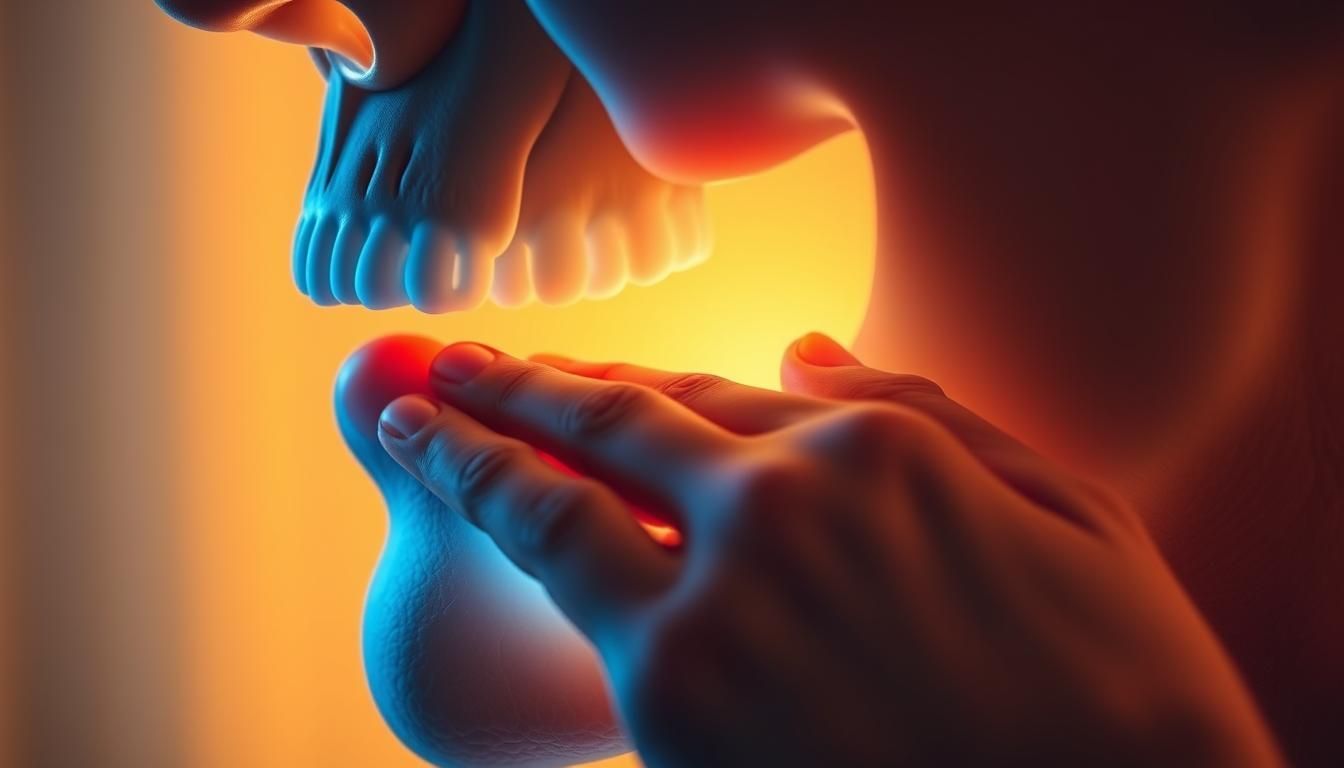New Paragraph
Can TMJ Cause Nausea?: What You Need To Know
Can TMJ Cause Nausea?: What You Need To Know

Temporomandibular Joint Dysfunction (TMJ) often causes many symptoms. One interesting issue is tmj and nausea. TMJ is usually linked to jaw pain and clicking sounds. But, it can also affect the body's balance system.
This system helps us stay balanced and oriented in space. Problems with it can make us feel like we're getting motion sickness. This can lead to nausea.
TMJ's symptoms, like tmj symptoms and nausea, can be confusing. They show how TMJ can affect more than just the jaw. The balance system can get disrupted, causing dizziness and nausea.
To learn more about how these symptoms are connected, check out this in-depth article.
Key Takeaways
- TMJ's impact on the vestibular system can cause nausea, akin to motion sickness.
- Nausea is often accompanied by other TMJ symptoms like jaw pain and dizziness.
- Understanding the vestibular system's role can clarify why TMJ causes nausea.
- This connection points to the broader systemic effects of TMJ beyond jaw pain.
- Efficient coping with tmj and nausea begins with recognizing these interconnected symptoms.
- For further information on nausea linked to TMJ, visit this resource.
Do You Know Untreated TMJ Affects Your Brain And Entire Body?
TMJ disorders can affect your whole body, not just your jaw. People with TMJ and nausea often feel pain in their shoulders, neck, and back. This is because TMJ causes tension and stiffness.
Untreated TMJ can also change how your brain works. It can make even small touches hurt a lot. You might find it hard to focus or remember things because of the pain.
TMJ can even affect your mood and stress levels. It can make your brain more sensitive to pain. This can lead to serious issues like balance problems or neurological diseases.
It's important to find good treatment for TMJ and nausea. A holistic approach to TMJ and nausea looks at your whole health. It's not just about treating symptoms.
TMJ can also cause ear and sinus problems. It affects your brain and mood, making life harder. Looking for new ways to treat TMJ and nausea is key to feeling better.
TMJ pain affects your jaw joint and other areas of your body
TMJ pain seems to start in the jaw but can spread to other parts of the body. This is because muscles and nerves are connected. So, TMJ disorders can cause unexpected symptoms. People often look for tmj pain relief in many ways.
Eye Twitching: A Surprising Connection to TMJ
Eye twitching, or myokymia, is linked to TMJ disorders. The facial nerve gets irritated by TMJ problems. This can make the eye muscles twitch involuntarily. Finding remedies for tmj and nausea might help with this symptom.
Vertigo and Dizziness: More Than Balance Issues
Vertigo and dizziness are more than balance problems. TMJ misalignment can upset the ear's balance structures. This leads to these disorienting feelings. Getting to the root cause through tmj pain relief can help a lot.
Numbness and Tingling: TMJ’s Impact on Your Nerves
Numbness and tingling in the face and neck are common in TMJ sufferers. TMJ tension can affect nerves, causing these uncomfortable feelings. Finding the right remedies for tmj and nausea can help with these nerve issues.
Sinus and Ear Problems: Hidden TMJ Symptoms
Sinus and ear problems are often mistaken for infections. But they can be signs of TMJ disorders. TMJ pressure and misalignment can lead to secondary issues in these areas. This shows how widespread TMJ pain can be.

Treating TMJ Induced Nausea
Fixing TMJ-induced nausea needs a plan that attacks the problem at its source: the temporomandibular joint disorder. By tackling tmj and nausea together, patients can feel a lot better.

Relieving Nausea the Right Way
Good ways to treat tmj and nausea include dental fixes like adjusting bites and using devices to ease joint pressure. Also, medicines for pain and nausea help a lot. Non-invasive methods like physical therapy and relaxation help manage TMJ and its symptoms in a whole way.
- Resting the temporomandibular joint (TMJ)
- Medicines or pain relievers
- Relaxation techniques and stress management
- Behavior changes to reduce teeth clenching
- Physical therapy
- Orthopedic appliances or mouthguards
- Posture training
- Diet changes to rest jaw muscles
- Ice and hot packs
- Surgery as a last resort
How DC Implant & Cosmetic Dentistry Treats TMJ
DC Implant & Cosmetic Dentistry is a top choice in Washington, D.C. for TMJ treatment. They are located in Hastings Condominiums at 4444 Connecticut Ave NW #106, Washington, DC 20008. They take a holistic approach to diagnose and treat TMJ issues.
Comprehensive Evaluation
The first step is a detailed evaluation. They check how TMJ affects the jaw, neck, and posture. Their team makes sure to assess every part of the disorder to create a specific treatment plan. For more information on TMJ disorders and how they are diagnosed, visit this resource.
Non-Surgical Treatments
DC Implant & Cosmetic Dentistry focuses on non-surgical treatments. They use custom orthotic devices and physical therapy to ease symptoms. This method aims to provide relief without surgery, which many prefer.
Personalized Treatment Plans
Every patient at DC Implant & Cosmetic Dentistry gets a treatment plan made just for them. These plans are tailored to address each patient's specific symptoms. This ensures that each client gets the best care for their TMJ condition.
FAQ
Can TMJ cause nausea?
Yes, TMJ can cause nausea. TMJ misalignment can disrupt the vestibular system. This can make you feel like you're sick, leading to nausea.
How does untreated TMJ affect the brain and the entire body?
Untreated TMJ can affect the brain and body a lot. It can make pain more sensitive, affect thinking, and change how you handle stress. It can even impact your mood.
How can TMJ cause symptoms like eye twitching?
Eye twitching can be a sign of TMJ issues. TMJ tension can irritate facial nerves. This can cause twitching or spasms in facial muscles.
Does TMJ cause vertigo and dizziness?
Yes, TMJ can cause vertigo and dizziness. TMJ problems can affect the ear's balance structures. This can lead to these symptoms.
Why does TMJ cause numbness and tingling?
Numbness and tingling can come from TMJ tension. TMJ can compress or irritate jaw area nerves. This can cause these sensations.
Can sinus and ear problems be related to TMJ?
Yes, sinus and ear problems can be related to TMJ. TMJ issues can cause inflammation and pressure. This can show up in the sinuses and ears.
What treatments are available for TMJ-induced nausea?
To treat TMJ-induced nausea, you need to fix the TMJ problem. Dental treatments like bite adjustments or appliances can help. Medications for nausea and pain are also used. Non-invasive therapies like physical therapy and relaxation techniques can also help.
How does DC Implant & Cosmetic Dentistry approach TMJ treatment?
DC Implant & Cosmetic Dentistry treats TMJ disorders with a detailed evaluation. They look at how TMJ affects jaw, neck, and posture. They use non-surgical treatments like custom orthotic devices and physical therapy.
Each patient gets a treatment plan made just for them. This plan is designed to give long-term relief from symptoms.



